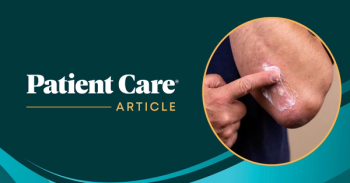
Role of Anti–SS-A and Anti–SS-B Tests in Sjögren Diagnosis
I enjoyed the article by Kenneth H. Fye, MD, "Rheumatic Disease: How to Use theLab in the Workup" (CONSULTANT, March 2004, page 369). However, I foundthe following statement to be misleading: "Anti-SS-A and anti-SS-B determinationsare necessary to rule out Sjgren syndrome in patients with sicca complaints."If the results of these tests are negative, but Sjgren syndrome was initiallysuspected based on the history, labial biopsy is required. Many persons with thisdisease have negative antibody test results.Unfortunately, it often takes years before Sjgren syndrome is correctly diagnosedin most patients. This is usually because a health care provider rules it outbased on negative results of anti-SS-A and anti-SS-B tests.---- Paula Hochberg, ARNPSarasota, FlaYou are correct that negative results of tests foranti-SS-A and anti-SS-B antibodies do not ruleout Sjgren syndrome. Although the majorityof patients with this syndrome have these antibodies,a significant minority do not. If, in thislatter group of patients, Sjgren syndrome is strongly suspectedon clinical grounds, a minor salivary gland biopsyshould be considered. Biopsy is the most specific andsensitive test for Sjgren syndrome. Although a biopsy isnot required to make the diagnosis in every patient, thereare clearly those with negative tests for anti-SS-A andanti-SS-B in whom a biopsy is necessary to confirm suspectedSjgren syndrome. Thus, my statement shouldhave read instead, "Positive anti-SS-A and anti-SS-B determinationssupport a diagnosis of Sjgren syndrome inpatients with sicca complaints."---- Kenneth H. Fye, MDClinical Professor of MedicineRheumatology DivisionUniversity of California, San Francisco,School of Medicine
I enjoyed the article by Kenneth H. Fye, MD, "Rheumatic Disease: How to Use theLab in the Workup" (CONSULTANT, March 2004, page 369). However, I foundthe following statement to be misleading: "Anti-SS-A and anti-SS-B determinationsare necessary to rule out Sjgren syndrome in patients with sicca complaints."If the results of these tests are negative, but Sjgren syndrome was initiallysuspected based on the history, labial biopsy is required. Many persons with thisdisease have negative antibody test results.Unfortunately, it often takes years before Sjgren syndrome is correctly diagnosedin most patients. This is usually because a health care provider rules it outbased on negative results of anti-SS-A and anti-SS-B tests.---- Paula Hochberg, ARNP
Sarasota, FlaYou are correct that negative results of tests foranti-SS-A and anti-SS-B antibodies do not ruleout Sjgren syndrome. Although the majorityof patients with this syndrome have these antibodies,a significant minority do not. If, in thislatter group of patients, Sjgren syndrome is strongly suspectedon clinical grounds, a minor salivary gland biopsyshould be considered. Biopsy is the most specific andsensitive test for Sjgren syndrome. Although a biopsy isnot required to make the diagnosis in every patient, thereare clearly those with negative tests for anti-SS-A andanti-SS-B in whom a biopsy is necessary to confirm suspectedSjgren syndrome. Thus, my statement shouldhave read instead, "Positive anti-SS-A and anti-SS-B determinationssupport a diagnosis of Sjgren syndrome inpatients with sicca complaints."---- Kenneth H. Fye, MD
Clinical Professor of Medicine
Rheumatology Division
University of California, San Francisco,
School of Medicine
Newsletter
Enhance your clinical practice with the Patient Care newsletter, offering the latest evidence-based guidelines, diagnostic insights, and treatment strategies for primary care physicians.

































































































































